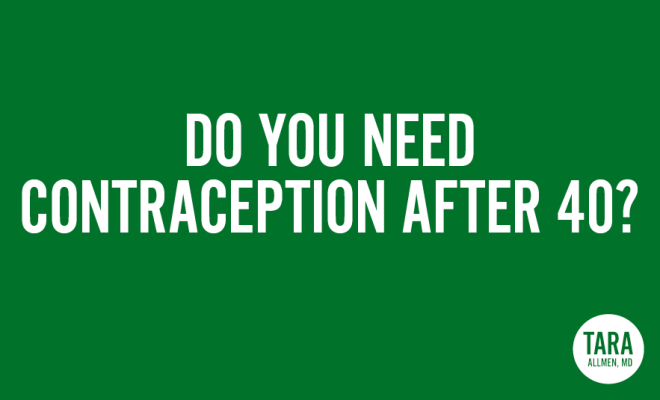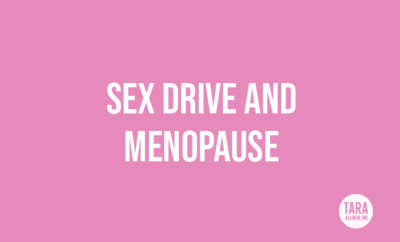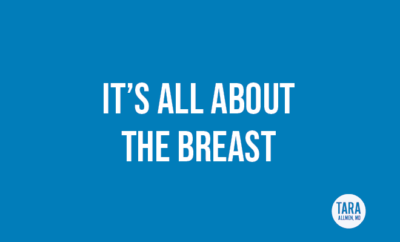
40s
Do You Need Contraception After 40?
It always comes as news to my forty-something patients that they can still get pregnant. Of course, I am not saying that a midlife pregnancy is an easy feat to accomplish. But it definitely happens with more frequency than you realize. In fact, statistically speaking, when it comes to unintended pregnancies, the perimenopausal crowd is right behind those young and fertile teenagers. The reason for this is simple. Midlife women think they are too old to get pregnant, so they do not use contraception.
I will never forget when a 46-year-old patient consulted me about irregular periods, which are so typical during the perimenopausal journey. Because she was sexually active, I ordered a pregnancy test. Surprise and shock followed. This unintended pregnancy news ultimately turned out to be a happy surprise for my patient who had never had a child. But for most of us, a midlife pregnancy is more complicated and risky. And frankly, it is not on our to-do list at this point in our lives. So let’s review the best contraceptive choices for the midlife woman.
My favorite type of contraception for this stage of life is the underappreciated intrauterine device (IUD) now referred to as an intrauterine system (IUS). That’s right, you heard it here first. Some of you may remember the controversy from the 1970’s when the Dalkon Shield IUD got a deservedly bad reputation because it caused significant pelvic infections and subsequent infertility issues for many women. That particular IUD had a braided string that allowed bacteria to crawl right up into the uterus and wreak havoc. No other IUDs have been made with this type of string and so none have led to that terrible complication, and yet they all continue to suffer from a branding problem. There are currently several great IUS choices on the market, and a discussion with your health care professional will help you choose which one is right for you.
My other favorite type of contraception is a combination estrogen-progestin birth control pill. (Yes, I can have two favorites!) As long as you are not a cigarette smoker and you do not have any increased risk for blood clots, heart attack or stroke, you are a candidate for daily low-dose birth control pills.
If you used this form of contraception in your younger years, you may recall that you took 3 weeks of active pills followed by 1 week of inactive pills (otherwise known as placebo). Back in the day, the reason for the placebo week was to trigger a withdrawal bleed that allowed young women to feel like they were having a period, just like everyone else. The appearance of this monthly bleed was also helpful to reassure women and their health care professionals that the pills were being taken correctly, thus reducing the chances of an unintended pregnancy.
For the perimenopausal crowd, we give the pills continuously without a placebo break. The reason is that many of you are beginning to experience hot flashes, night sweats, moodiness, and brain fog, which are associated with irregular and unreliable estrogen production in perimenopause. So it is much better to give the brain a reliable supply of estrogen every day.
Another noncontraceptive benefit of a low dose birth control pill, especially when taken continuously with a placebo break, is that it will thin the lining of your uterus, so you do not have to worry that there is any buildup of uterine tissue requiring sloughing out. This will lead to less bleeding and spotting over time, which is a good thing.
So in general, this form of contraception gives more bang for your buck, because it provides contraception as well as perimenopausal symptom relief and can be taken until the age of 55. By then, most of us will be finished with the menopausal transition and will no longer need the higher contraceptive dosing of a birth control pill.
Here are some final fun facts about birth control pills that have nothing to do with contraception and are applicable to all age groups. They reduce your risk of both ovarian and uterine cancer, protect bone health, improve acne, and reduce PMS symptoms and heavy bleeding. They do not increase your risk of breast cancer or make you gain significant weight.
Tara Allmen, MD Credentials:
– Board Certified Gynecologist and Nationally Certified Menopause Practitioner
– New York City’s Leading Expert In Menopause
– President, North American Menopause Society Foundation
– Fellow of the American College of Obstetrics and Gynecology
– New York City’s Top Gynecologist, 2015
– Five Star Rating From Doctor’s Choice Awards
– Five Star Rating From HealthGrades










You must be logged in to post a comment Login